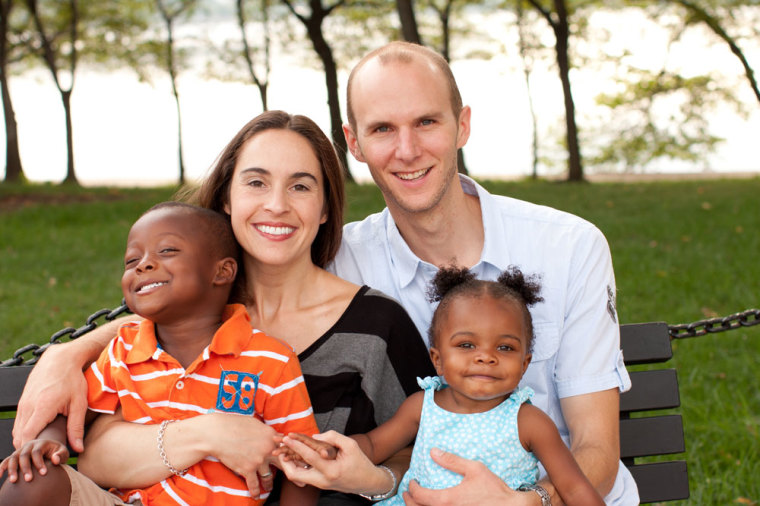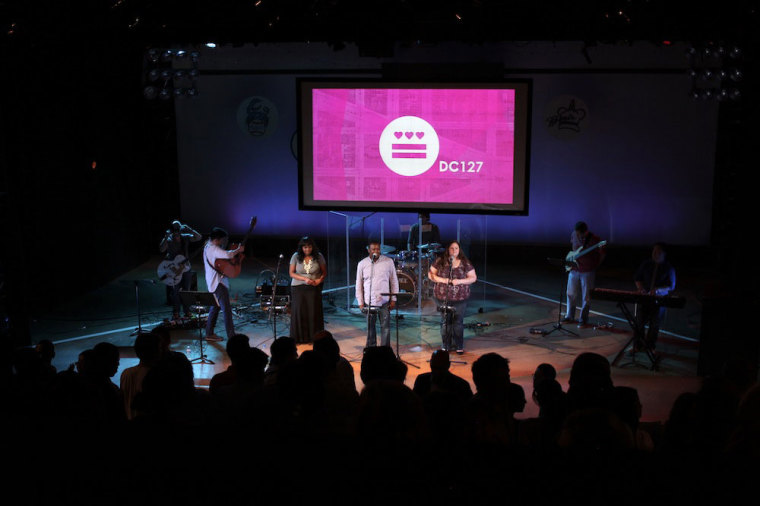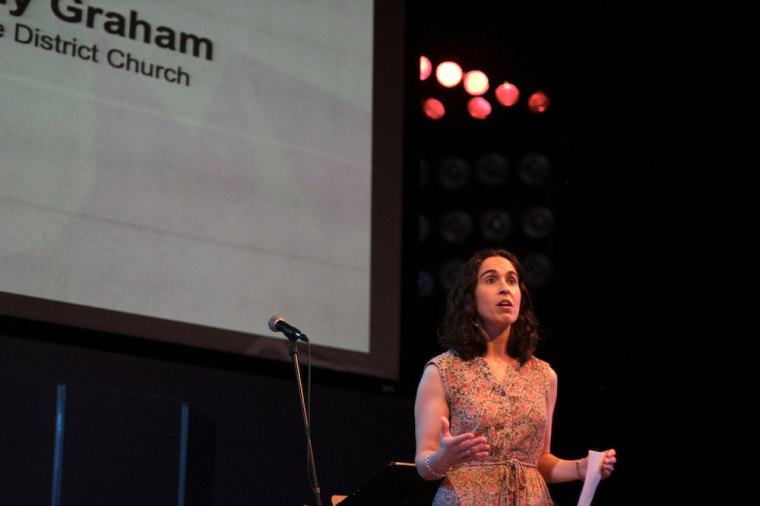DC Pastor Couple Mobilizes City Churches to Fill In Foster Care Gap
A couple who co-founded a church in Washington, D.C. has brought their passion for providing for kids in need of a home and family to the nation's capital, where over 3,000 kids are either in or on their way to the foster care system.
Aaron and Amy Graham while establishing the District Church learned about their new community and were convicted to share their fostering passion with their congregation. DC127, the initiative heading up this coordinated effort, aims to mobilize Washington's dozens of churches to replace the current foster care waiting list with one full of families in line to receive.
"It's surprising how many people there are that are committed to children welfare but how professionalized it has become," said Aaron to The Christian Post on Monday. "There are incredible agencies and social workers… but the church has largely been absent."
The Grahams found themselves accidental foster parents several years ago when they were co-pastoring the Quincy Street Missional Church in Dorchester, Mass. The couple devoted much of their time to the neighborhood's youth.
"One of the youth that was 16 asked if he could stay with us for a couple of nights," said Aaron. "We ended up fostering him for the entire summer."
This interest in fostering and adoption, in combination with Amy's Master's degree and work experience in social work and Aaron's community organizing background, led them several years later to adopt two children of their own.
Now years later after their first foster care experience, the Grahams have mobilized D.C. churches with the goal of "uniting to reverse the foster care wait list in Washington, D.C."
Still in its beginning stages, the initiative in May brought Chelsea Geyer on board as the project coordinator to begin building partnerships with existing stakeholders. Greyer has spent much of her time meeting with government agencies like D.C.'s Child and Family Services, as well as other foster care NGO that have tackled these problems for years.
"What [DC127] didn't want to do is recreate the wheel," said Geyer. "We want to figure out how we can complement what is already being done."
The organization took its name, DC127, from groups in Arizona and Colorado that shared similar foster care visions and James 1:27, which reads, "Religion that God our Father accepts as pure and faultless is this: to look after orphans and widows in their distress and to keep oneself from being polluted by the world."
While The District Church is fully on board with the DC127 initiative, the reality is that many of its roughly 300 attendees are transient twenty-something professionals – a population with a limited tradition of working in its community.
Nikki Heidenreich, who has been attended the church for several months, understands this phenomenon well. "The tone of our church has been to challenge us in the short time we're here and to say, 'don't be here and not invest in it,'" said Heidenreich. "Still, so many are striving in the city for themselves and their own ambition. D.C. is a means to an end and the problems of the people and their families who have lived here just get swept under the rug."
The District Church sees aligning these 20-somethings with churches that have more couples, families or individuals with capacities to serve specifically as foster parents as key to sustainably tackling the foster care problem, through prayer gatherings, workshops, education and trainings.
"We don't want people to just sign-up and think that this cause is just a cool-thing, without realizing how difficult it really is to foster and adopt or do the millennial thing – get distracted by the next thing," said Aaron. "We're really trying to educate people on how important it is to support families that are fostering or adopting. We need people that will pray, cook meals and babysit."
Aaron also acknowledges the necessity the importance of DC127 leading frank and honest conversations about the impact race will have on their work.
"Anyone who is a student of D.C. culture knows that race underlies every conversation," he said. "We want to help those who are considering [foster care] if there are transracial aspects, so that they can make informed choices. Too often people assume that because race isn't an issue for them, it won't be an issue for their family. Unfortunately, there's the reality of our world and many people still see things through the lens of race. We are committed to helping to educate."
Heidenreich is appreciative and supportive of the hard work that her church is tackling.
"I am proud of my church," said Heidenreich. "Some churches can over-extend themselves and not be effective. I think they're really doing their homework. It's a brave move. There's simpler things they could have chosen."
On the Web: www.dc127.org
























